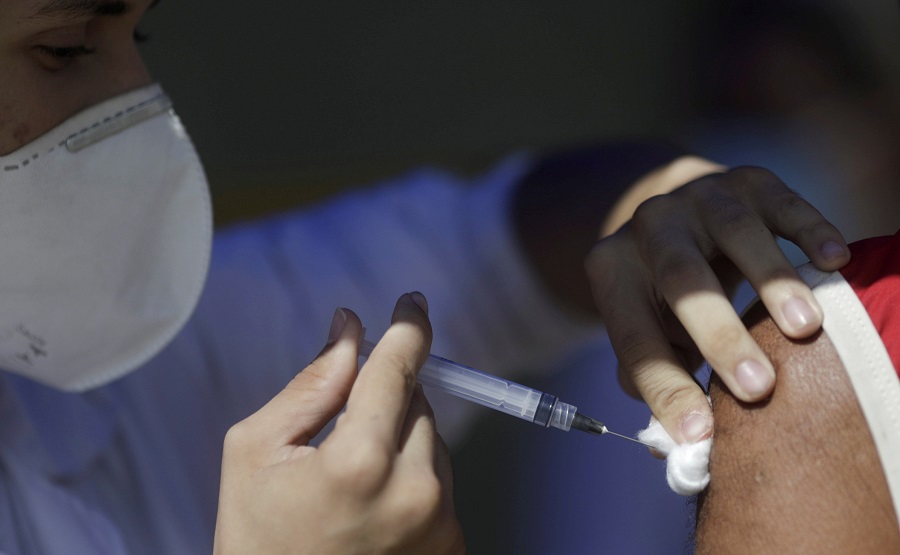RIO DE JANEIRO, BRAZIL – Since vaccination against Covid-19 started in Brazil in January this year, citizens living in neighboring countries – and who also have Brazilian nationality – have been crossing the border to be immunized by the SUS (Brazil’s National Health System).
As a result, states in this situation have requested additional doses from the Ministry of Health. The reverse has also been occurring: Brazilians travel to another country to be immunized, as is the case of people from Rio Grande do Sul who live near Uruguay and have “doble chapa” (dual citizenship). Because of this flow, the government of Rio Grande do Sul has been negotiating with the neighboring country, through videoconferences, a joint vaccination in border territories.

A Bilateral Technical Cooperation to enable the plan is under discussion. The meetings include officials from the Ministry of Health and the embassies of Brazil and Uruguay.
“In these territories there are many common activities and displacements among nationals of the two countries. The protocols to be jointly created must take into account the specificities of the immunization plans of the two countries and the similarities and differences between the speed of vaccination, priority groups, and the amount of doses available in each country, among other factors,” said the Rio Grande do Sul Health Secretariat in a statement.
On the border with Bolivia and Paraguay, Mato Grosso do Sul has requested the Ministry of Health to provide 30% more doses of the vaccine for 13 cities (Corumbá, Ponta Porã, Mundo Novo, Japorã, Sete Quedas, Paranhos, Coronel Sapucaia, Aral Moreira, Antônio João, Bela Vista, Caracol and Porto Murtinho) bordering the neighboring countries, but has not yet received an answer from the portfolio.
The state’s Health Secretary Geraldo Resende, has said that dual nationality results in Mato Grosso do Sul hosting Paraguayans and Bolivians in border cities, which leads to an increase in the population to be immunized.
In Ponta Porã, on the border with the Paraguayan city of Pedro Juan Caballero, the IBGE (Brazilian Institute of Geography and Statistics) estimates that 93,937 people live in the municipality, but the number of people registered in the SUS is much higher: 130,000.
The government also reported that Brazilians living in Porto Quijarro, Bolivia, seek vaccination in the city of Corumbá. The National Immunization Plan (PNI) system does not include space for filling in data about foreigners’ vaccinations, and the immunization is being conducted only for those with SUS cards.
In a meeting in late March with Health Minister Marcelo Queiroga, Acre governor Gladson Cameli asked for and received confirmation that there would be an increase in the number of vaccines to be received, as a form of compensation for the border areas. The demand was for the same 30% additional doses requested by Mato Grosso do Sul.
Although it has registered the vaccination of only 5 foreigners, the government of Pará has also requested the restocking of doses. In the case of Amazonas – a state bordering Peru, Colombia, and Venezuela – there was no need to request extra doses of Covid-19 immunizers because the estimate, defined by the Ministry of Health, included the foreign population.
Due to the collapse faced with the shortage of oxygen in hospitals and record deaths, Amazonas received immunizers from other states. To be immunized, citizens must present their National Health Card or CPF (Brazilian individual taxpayer registry), and there are no restrictions on foreigners, who commonly seek health services in border regions.
The government of Roraima reported that it has administered almost 101,000 vaccine doses and that only 1,705 were destined for people from other countries. Therefore, there was no need to request additional doses from the Ministry of Health. The state borders Venezuela and Guyana.
Santa Catarina state, which borders Argentina, and Mato Grosso state, on the border with Bolivia, reported that their municipalities did not report any extra flow and, therefore, did not request additional vaccines.
Source: Veja

